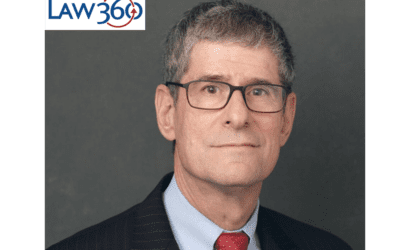Two non-physical conditions that can impact an individual’s ability to work are hearing disorders and balance disorders. Severe cases may lead workers to file for short-term disability or long-term disability benefits. Below, we dive into the ins and outs of hearing and balance disorder disability claims.
Table of Contents
Understanding Hearing & Balance Disorders
Hearing Disorders
A hearing disorder is any condition that causes diminished hearing or complete deafness. The most common hearing disorders that can impact functionality include:
- Acoustic Neuroma: Acoustic Neuroma is a benign tumor on the vestibulocochlear nerve, causing hearing loss, tinnitus, and balance issues.
- Tinnitus: Tinnitus causes ringing, buzzing, or other noises in one or both ears. It often indicates underlying conditions like hearing loss or ear injury.
- Auditory Neuropathy: Auditory Neuropathy occurs when sound enters the ear normally. However, the transmission of signals to the brain is impaired, affecting speech and sound interpretation.
- Meniere’s Disease: Meniere’s Disease causes vertigo, fluctuating hearing loss, and ear fullness, often in just one ear.
- Noise-Induced Hearing Loss: Noise-Induced Hearing Loss occurs from long exposure to loud sounds, damaging the ear’s sensory cells.
- Barotrauma: Barotrauma results from changes in air or water pressure, damaging the ear. This can lead to discomfort and, in severe cases, hearing loss.
Balance Disorders
A balance disorder refers to any condition that makes you feel dizzy, lightheaded, unsteady, or the sensations of moving, spinning, or floating. Some of the most common balance disorders that can cause disability are:
- Benign Paroxysmal Positional Vertigo (BPPV): A common vestibular disorder. It causes brief episodes of dizziness, ranging from mild to intense when you move your head in certain positions. This occurs due to calcium particles clumping in the inner ear’s canals.
- Meniere’s Disease: Meniere’s triggers episodes of intense vertigo, making individuals feel as though they are spinning, which severely impacts balance and can lead to frequent dizziness and instability.
- Labyrinthitis: An inner ear problem that results from inflammation of the labyrinth, causing sudden onset of intense, often debilitating vertigo, along with hearing loss and tinnitus.
- Vestibular Neuronitis: Vestibular Neuronitis, usually viral, causes prolonged vertigo without hearing loss, unlike labyrinthitis.
- Perilymph Fistula: Perilymph Fistula involves a tear or defect in the ear’s membranes. This allows fluid to leak, causing vertigo and hearing loss, often due to pressure changes or exertion.
Hearing and balance disorders are often related, originating from the brain and inner ear’s vestibular system. These conditions can also be hereditary or caused by traumatic head injuries.
Legal Challenges in Disability Claims for Hearing & Balance Disorders
Impact on One’s Job Performance
The specific diseases listed above affect individuals’ ability to work in several ways. Most notably, the conditions generally do not physically prevent an individual from working. Rather, hearing and balance disorders prevent the performance of one’s job duties by limiting the worker’s ability to hear and/or concentrate, respectively. Both types of disorders can also cause chronic headaches, fatigue, ringing in the ears, cognitive difficulties, and trouble sleeping.
Diagnosis Challenges
The nature of hearing and balance disorders presents unique challenges within the context of disability claims. More specifically, disability insurers can fall victim to common misconceptions surrounding those disorders. Insurers tend to focus on the physical limitations caused by a potentially disabling condition. Yet, as noted above, most of the symptoms someone with a hearing or balance disorder experiences are not physically limiting. Disability insurers also fixate on objective evidence. However, some of the symptoms of those disorders, such as fatigue, headaches, ringing in the ears, ear pain and pressure, and dizziness, cannot be objectively verified. In addition, hearing and balance disorders are often difficult to diagnose.
Should your hearing or balance disorder significantly impede your ability to work, it makes sense to file a disability claim seeking short-term or long-term benefits. When you file your claim, you will need to provide your insurer with evidence that your condition prevents you from performing your job. That evidence should include all relevant treatment records, supporting statements from your treating doctors addressing specifically why you cannot work, and your own reports of your symptoms and their effect on your functionality.
Related Article: The Importance of Medical Records to a Disability Benefit ClaimIt is also critical to include any sort of objective testing measure that verifies your impairments, such as:
- an audiometry, electrocochleography (ECoG), balance tests, or electronystagmography (ENG).
- Depending on the source of your impairment, an MRI or CT scan may also be beneficial.
- If your condition causes cognitive difficulties, then your condition could be verified via neuropsychological testing.
Simply put, your condition must be well-documented and provide your insurer with enough information to approve your claim.
Strategies for Overcoming Claim Denials & the Appeals Process
Even with the evidence discussed above, it is still possible for your insurer to deny your disability claim. However, that is not the end of the road – you are legally entitled to appeal the insurer’s decision and submit additional evidence in support of your claim.
There are several important things you should do if your disability claim is denied.
- First, you must effectively communicate the severity and impact of your conditions to your disability insurer.
- It is also important to clearly communicate that hearing loss cannot be reversed, and there are no cures for most hearing and balance disorders. These disorders also tend to progressively worsen over time.
- Furthermore, your disability insurer is required to state the reasons why it denied your claim. Therefore, you should submit the exact medical or vocational evidence the insurer is requesting.
Ultimately, however, the difference between an approval and a denial of your LTD claim can come down to whether you have legal representation. An experienced disability attorney will know how to maneuver the appeals process and ensure that you get the benefits you are entitled to.
If you struggle to work through impaired hearing and/or balance disorders, consulting with an experienced attorney will significantly increase your odds of getting your LTD claim approved. The attorneys at DeBofsky Law can help you do just that – we have successfully obtained disability benefits for a number of claimants who were unable to work due to hearing and/or balance disorders.







